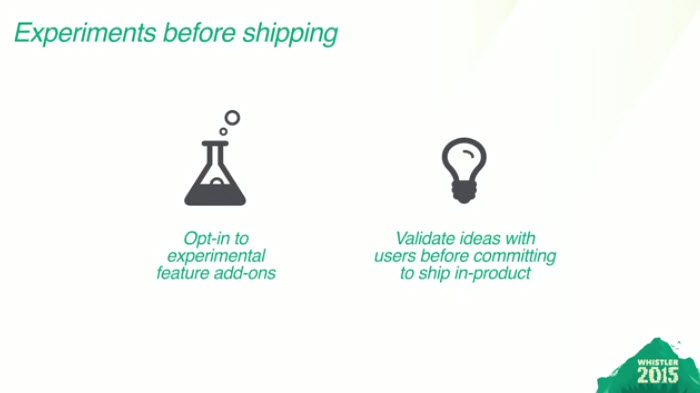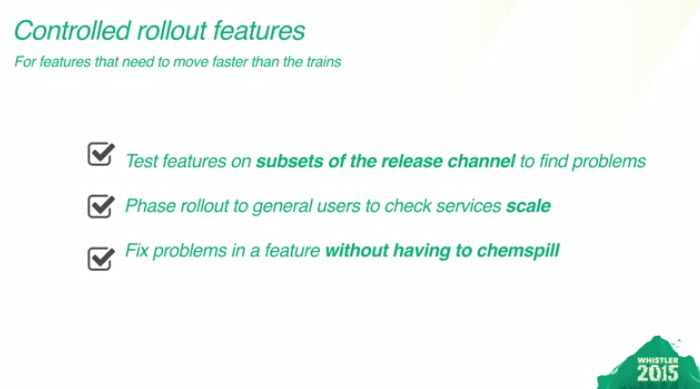Mozilla plans to change how Firefox ships in 2015
There has been one major change in past years in regards to how the Firefox web browser is developed and shipped to its users. Mozilla changed to a rapid release cycle in 2011 and has been using the model ever since.
While the organization does not plan to change the six week cycle just yet, its Go Faster initiative changes how Firefox for the desktop is shipped.
The linked Wiki page does not provide many answers as to why Mozilla is making the change, but if you watch the Go Faster presentation on Mozilla Air or here on ComTek4u, you will notice that the organization mentions the following reasons:
- Shorten the time it takes to validate ideas using user feedback and deliver features to users.
- Reducing risk.
- Improving quality.
- Reducing time to download updates and new versions.
- Reductions in build and release time.
Mozilla came up with two basic approaches that it wants to take at this point in time:
1. Offer opt-in options to experimental feature add-ons. Validate ideas with users before they are shipped with the main product to all users.

2. Controlled roll-out features to test features to test features on a subset of users, use phase rollouts to make sure services scale, and to fix problems in a feature early.

So how is Mozilla going to accomplish that?
Developers are working on integrating Go Faster support into desktop Firefox currently. One of the core features that Mozilla implements currently is to integrate support for system add-ons and updates.
Basically, what Mozilla plans to to is ship official Firefox features using the improved add-ons system. Moving features, not all of them but some, away from core Firefox enables Mozilla to deliver and update them as often as the organization wants without having to update Firefox as a whole at the same time.
This allows Mozilla to test features on a subset of users, modify or update them as needed, and also to remove them again if they are not liked by part of the focus group.
Since add-ons are restartless, this could mean that feature changes are rolled out while the user is using the browser. The example given in the demonstration was a new search interface that was updated while search was being used to display different information after the update.
The development plan mentions another improvement that is part of the Go Faster initiative. Mozilla plans to ship localizations separately from the core browser which means that language packs get decoupled from releases.
What's Go Faster's Schedule?
Mozilla targets the initial integration of the system add-ons feature for Firefox 43 which will land in the Developer Channel of the browser on September 21.
The organization plans to ship the first add-ons in the fourth quarter of 2015 and has already picked two which it plans to make available.
The first implements the Hello UI, Firefox's real-time chat component, as an add-on. The second, universal search, will be shipped as a Firefox experiment as well in the last quarter of 2015.
Now You: What is your take on this initiate?
This article was first seen on ComTek's "TekBits" Technology News

- Log in to post comments